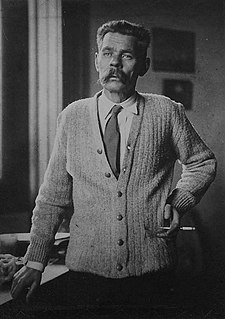A Quote by Louis Menand
One of the functions of literary criticism, or reviewing, generally - and I, most of my reviews actually are not about literature - but one of the functions of that is basically the sort of Consumer Reports function of letting readers know whether this is something they want to read.
Related Quotes
Literary men now routinely tell their readers about their divorces. One literary man who reviews books wrote, in reviewing a study of Ruskin, that he had never read a book by Ruskin but that the study confirmed him in his belief that he didn't want to read a book by Ruskin. This man very often writes about his family life.
In the home we make certain distinctions about functions of rooms and corridors; we do not deliver the groceries straight into the baby's crib. In hospitals we do not take the food trolleys right through the operating chamber, and we rarely have the recreation room next to the convalescent room. We sort out the functions. We have to sort out the functions of the city and the streams of traffic and re-create arterial systems that allow us to breathe ... the shape, pattern and sense of community which you expect if it were a home.
I don't read reviews. Just because that is something that's directly connected to my job. I'm doing this because I love it, not because I'm necessarily looking for approval or anything like that. To me, it seems that reading reviews - whether they're good ones or bad ones - can only sort of force the person to divorce themselves from the reality of what it is they do for a living. So I don't read reviews.
On a spectrum of literary productions, memoir is just another form. If the person doing the reviewing or critiquing was ill-educated about literary forms, they could write something dunderheaded about the author or their life (I've seen these and barfed at them), but anyone who is well-practiced and educated in literature - why would they leave that at the door when entering memoir?
What is literature, and why do I try to write about it? I don’t know. Likewise, I don’t know why I go on living, most of the time. But this not knowing is precisely what I want to preserve. As readers, the closest way we can engage with a literary work is to protect its indeterminacy; to return ourselves and it to a place that precludes complete recognition. Really, when I’m reading, all I want is to stand amazed in front of an unknown object at odds with the world.






































